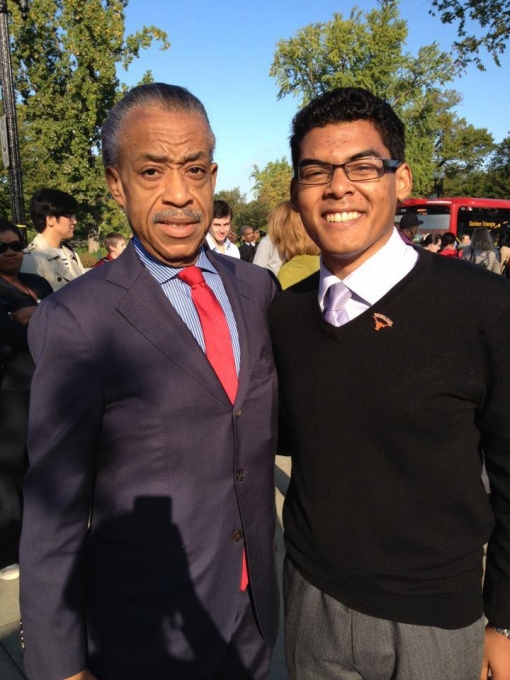Photo courtesy of Flickr
At the University of Texas at Austin, we take pride in our motto, “What starts here changes the world.” UT seeks to admit the best students to form classrooms where students learn as much from each other as they do from their professors. Holistic admissions is crucial to this and if we lose that in the Supreme Court case Fisher v. UT-Austin, then the students at UT, the state of Texas, and our nation will lose out on the greatness that UT’s classrooms cultivate.
Every day that I walk to class and every night that I walk home, exhausted from studying, I feel blessed to be a Longhorn. I am the first in my family to be on the path to graduate from college. I never knew my Chinese father and have only a handful of memories about my Black mother. My grandma raised me and always taught me to hold my head high regardless if we were making rent with Texas’s Section 8 rental assistance program or putting food on the table with the Supplemental Nutrition Assistance Program (SNAP). These experiences are deeply with me in the classroom, whether it be discussing W.E.B Dubois in a literature seminar or the Affordable Care Act in a political science class. Who you are, where you are from, and what you have been through do not disappear when you enter a classroom or write a paper. I would not have had this education without UT’s strong efforts to bring in as many diverse student perspectives as possible. This is not speculation -- I know this from experience.
I was a State of Texas academic champion in debate, but the truth is that I wasn’t in the top ten percent of my class, and I would not have been accepted under UT’s non-holistic admissions process known as the “Top Ten Percent Rule.” So, I left the southwest area of Houston, TX, for northeast Ohio when I graduated from high school. But in Ohio, I felt displaced. Someone once told me she heard “black people have extra bones in their feet” or that “to be poor is to be lazy.” I began to think it would not be possible to engage in the advocacy work that I sought to do in Ohio. And, despite the few folks whom I grew close to, the homogeneous student body was the greatest reason for me to return to my home state of Texas.
A school like UT allows me to engage in more academic pursuits because of its size and prestige. I was a scholar in a great books program. I interned at a public interest law group and presented research on clemency cases involving Mexican Americans. I’m Director of Operations at UT’s Students for Equity and Diversity, part of the Multicultural Engagement Center, under the Division of Diversity and Community Engagement. Those two entities embody the idea that UT should provide an outstanding education to all of Texas’s students and that all should feel welcomed; representatives of both signed on to the amicus brief submitted by the Asian American Legal Defense and Education Fund in support of UT in the Fisher Supreme Court case.

Photo courtesy of Joshua Tang
I have, by the way, achieved all of this as a student admitted to UT under holistic admissions. This work has made college truly rewarding and has given me a vision for the work I want to do in the future. It is not a secret how UT has been able to provide an institution of academic excellence and a space where students like me can flourish and hope to become leaders. UT’s holistic admissions process allows it to select students that it knows will work to better the university and ultimately change the world.
I am currently ending my time at the University of Texas and undergraduate admissions decisions no longer directly affect me. I care about this issue, however, because my life has taught me that a good education is a way to provide a better life for yourself and your family. I look forward to the day when my grandma can hear me present my undergraduate thesis and see me walk across the stage to receive a degree with honors. There are many more students from communities like mine who deserve this opportunity as well. I hope that the Supreme Court will recognize that UT has achieved something special. Our motto has already been proven true by this case. I hope that what starts at Texas will continue to change the world for the better. Holistic admissions must be preserved so this is possible across the country.
***
Joshua Tang is a senior at the University of Texas at Austin where he studies government and history. He hopes to work on behalf of underprivileged children in the future.









Comments